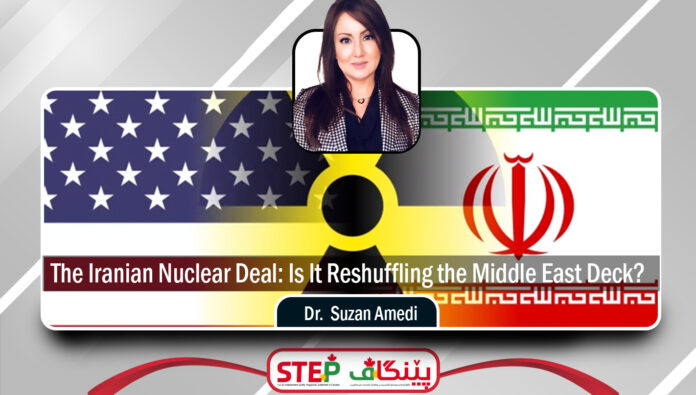Dr. Suzan Amidi
Amid global escalations—from the rumble of war in Ukraine to the shadows of conflict in Gaza—the Iranian nuclear file returns to the forefront, but this time with a different flavor: that of silent settlements and veiled messages.
The United States, exhausted by the fragmentation of fronts, appears increasingly inclined to stabilize relations with Tehran rather than confront it. Iran, for its part, is smartly capitalizing on the shifting global landscape, negotiating with the mindset of a player who knows that Washington can no longer afford the cost of an open conflict in the Gulf or broader Middle East.
What’s being shaped behind closed doors reverberates across the region. Israel is redrawing its red lines, the Gulf is questioning the security cost of such understandings, and Turkey is cautiously observing, interpreting the deal through the lens of its regional rivalry with Tehran. Meanwhile, Iraq once again finds itself in the heart of a power game it neither controls nor benefits from—yet still pays the price for.
If concluded, the nuclear deal will be far more than a technical agreement on enrichment and inspections. It would mark the beginning of a new phase: a reorganization of influence and vital spheres. Tehran may emerge as the biggest winner of a moment defined by global uncertainty—unless countered by a unified Arab strategy that reclaims the language of partnership instead of subordination.
What About the Kurds? Fallout and Margins
Caught in the middle of these grand recalibrations are the Kurds of Iraq and Syria—among the most affected and yet least influential players in these settlements.
In the Kurdistan Region of Iraq, any rapprochement between the U.S. and Iran likely signals a shrinking of the American role as an informal guarantor of the Region’s delicate balance, while empowering Tehran’s hand in Baghdad. This opens the door, once again, to renewed attempts to politically and financially squeeze Erbil through centralized pressures.
In Syrian Kurdistan, shifts in the nuclear equation could alter the rules of engagement between Tehran, Damascus, and Washington. Any American preoccupation with Tehran might translate into a deeper vacuum—one that Damascus and Iran could exploit to reassert control and gradually undermine the self-administration project.
The Kurds’ margin in this game is narrowing—unless they move swiftly to articulate a unified stance that repositions them as a balancing actor rather than a disposable card in the hands of regional powers. In volatile times, political opportunities are not granted; they are seized.
The message embedded in every Western settlement with Tehran is clear: geography abhors a vacuum, and politics does not honor intentions—it rewards leverage and presence. In this age of repositioning, you’re either at the table—or on the menu.






Great analysis to the subject with quite detailed information about the future of the M E region after any re negotiation between Iran and USA.